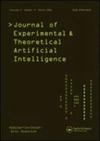The risks associated with Artificial General Intelligence: A systematic review
IF 1.7
4区 计算机科学
Q3 COMPUTER SCIENCE, ARTIFICIAL INTELLIGENCE
Journal of Experimental & Theoretical Artificial Intelligence
Pub Date : 2021-08-13
DOI:10.1080/0952813X.2021.1964003
引用次数: 19
Abstract
ABSTRACT Artificial General intelligence (AGI) offers enormous benefits for humanity, yet it also poses great risk. The aim of this systematic review was to summarise the peer reviewed literature on the risks associated with AGI. The review followed the Preferred Reporting Items for Systematic Reviews and Meta-Analyses (PRISMA) guidelines. Sixteen articles were deemed eligible for inclusion. Article types included in the review were classified as philosophical discussions, applications of modelling techniques, and assessment of current frameworks and processes in relation to AGI. The review identified a range of risks associated with AGI, including AGI removing itself from the control of human owners/managers, being given or developing unsafe goals, development of unsafe AGI, AGIs with poor ethics, morals and values; inadequate management of AGI, and existential risks. Several limitations of the AGI literature base were also identified, including a limited number of peer reviewed articles and modelling techniques focused on AGI risk, a lack of specific risk research in which domains that AGI may be implemented, a lack of specific definitions of the AGI functionality, and a lack of standardised AGI terminology. Recommendations to address the identified issues with AGI risk research are required to guide AGI design, implementation, and management.与人工智能相关的风险:系统回顾
人工通用智能(AGI)为人类带来了巨大的利益,但也带来了巨大的风险。本系统综述的目的是总结同行评议的与AGI相关的风险文献。该评价遵循了系统评价和荟萃分析的首选报告项目(PRISMA)指南。16条被认为有资格列入。综述中包含的文章类型分为哲学讨论、建模技术的应用以及与AGI相关的当前框架和过程的评估。审查确定了与AGI相关的一系列风险,包括AGI脱离人类所有者/管理者的控制,设定或制定不安全的目标,开发不安全的AGI,道德、道德和价值观不佳的AGI;AGI管理不足,以及存在的风险。还确定了AGI文献基础的几个局限性,包括专注于AGI风险的同行评审文章和建模技术数量有限,缺乏可以实施AGI的特定风险研究,缺乏AGI功能的特定定义,以及缺乏标准化的AGI术语。需要针对AGI风险研究中发现的问题提出建议,以指导AGI的设计、实施和管理。
本文章由计算机程序翻译,如有差异,请以英文原文为准。
求助全文
约1分钟内获得全文
求助全文
来源期刊
CiteScore
6.10
自引率
4.50%
发文量
89
审稿时长
>12 weeks
期刊介绍:
Journal of Experimental & Theoretical Artificial Intelligence (JETAI) is a world leading journal dedicated to publishing high quality, rigorously reviewed, original papers in artificial intelligence (AI) research.
The journal features work in all subfields of AI research and accepts both theoretical and applied research. Topics covered include, but are not limited to, the following:
• cognitive science
• games
• learning
• knowledge representation
• memory and neural system modelling
• perception
• problem-solving

 求助内容:
求助内容: 应助结果提醒方式:
应助结果提醒方式:


